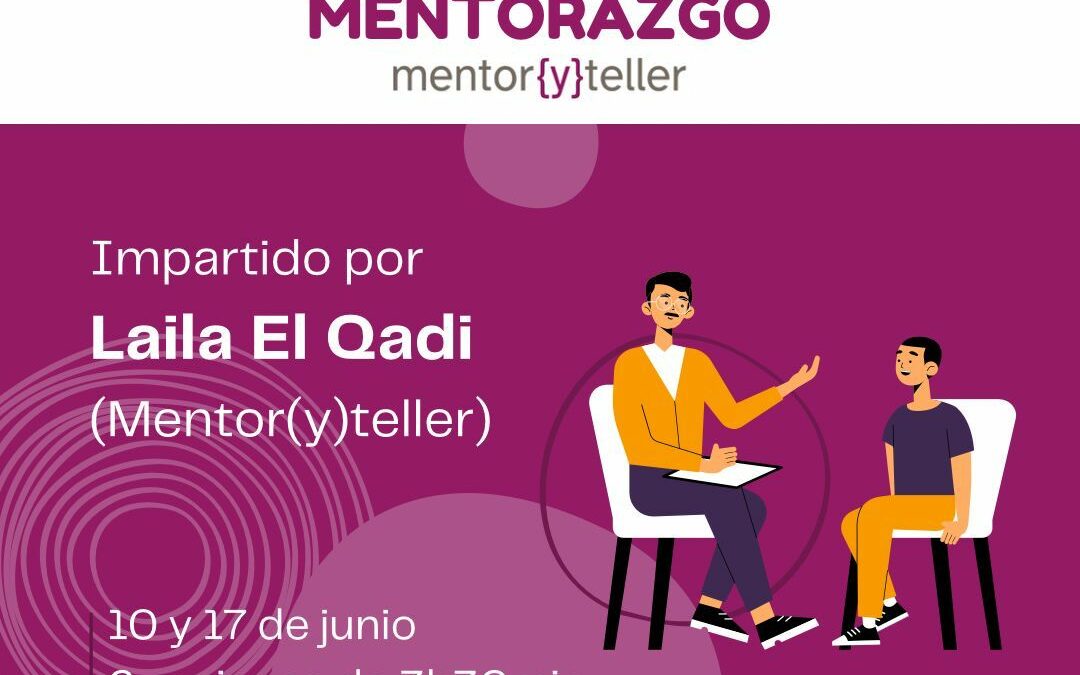The second class of mentors accredited by CENL has just finished their training
By Beba ARLANZON
Tradition tells that the first mentor in history was Mentor, a friend of Ulysses, to whom the Greek hero entrusted the education of his son Telemachus before leaving for the Trojan War. In reality, Telemachus had a mentor, since Athena, goddess of wisdom, took on the appearance of Mentor to guide and advise the young man. It is likely that the figure of the mentor is as old as humanity. We know that it existed in different cultures and that it took root in Europe. Thus, Socrates was the teacher of Plato, Plato that of Aristotle and Aristotle, in turn, that of Alexander the Great. Mentorship passed from Greece to Rome and continued to evolve over the centuries: the relationship between masters and apprentices in medieval and Renaissance guilds and workshops, the literary halls of the Enlightenment or political mentors to name a few examples. A story with a male face despite the fact that there were also female mentors. In any case, the essence of mentoring does not change: someone with experience advises another person with less experience and helps them develop. To find out in depth the characteristics of 21st century mentoring, we interviewed Laila Al Qadi, professor of the two accreditation courses taught at CENL.
Question. It is possible that when hearing the word “mentor”, many people think of sports trainers (coaches) from American movies. What does a “mentor” do in the 21st century and how is he different from other figures such as the coach, the motivational speaker or even a psychologist?
Answer. A mentor is an experienced person who guides another (mentee) in achieving her personal or professional goals and who shares experiences, advice and knowledge with her. Mentoring is a process of personal development through learning and the emotional, mental and behavioral changes that occur in the mentee. In the words of David Clutterbuk, co-founder of the European Mentoring and Coaching Council (EMCC) and pioneer of professional mentoring, “a mentor is a mature coach.” Mentors do coaching, understood as aligning objectives and working towards them. Psychologists, on the other hand, are professionals in human behavior and are trained to help and alleviate situations that, due to their complexity, cannot be addressed by a mentor. The mentor must be able to identify these issues, be honest, and let the mentee know that they cannot offer the help they need. Regarding the motivational speakers, they encourage the viewer through inspiring talks, but they do not inquire, listen or accompany in the process of personal or professional development.
Q. On what scientific bases is mentoring based?
A. Mentoring is supported by numerous scientific studies, you just have to take a walk through the search engine or scientific editorials and see what is published. Actually, it is based on philosophy, neurology, anthropology, sociology, psychology and pedagogy. There are many disciplines that have investigated, and continue to investigate, how professional mentoring influences these fields.
Q. Mentees expect results. In general, what is the success rate under “normal” conditions? That is, with realistic objectives, apprentices who are involved in the process and without adverse circumstances that interfere negatively in the process.
A. Mentoring has been shown to have many advantages for the mentee if certain conditions are met. The mentee has to be committed to the learning process because he is going to find himself in situations that can “revolt” him inside and be difficult to manage. Many mentees give up when they see that mentoring is not training, that the mentor is not going to tell them how to solve their issues or how to achieve their objectives, but through questions, elevated conversations and full listening, the mentor encourages, challenges and questions the mentee’s beliefs and makes him reflect on himself. When the mentee is open to exploring, reflecting, and putting into practice decisions that may be out of his zone of control, the success rate is very high.
Q. When should we consider connecting with a mentor?
A. Practically from childhood. If you have the possibility to participate in a mentoring program, take advantage of the opportunity. Both formal and informal mentoring, that is, structured programs with established objectives or flexible programs, allow the learning process to be accelerated. The occasions to consider resorting to a mentor start from within: when you are blocked and don’t know what to do, when you want to get a job, when you want to develop organizational leadership skills…
“People seek the professional services of mentors to be able to reflect on how to achieve their goals and live fully”
Q. A mentor has to know the person they are mentoring, but they are not their therapist. To what extent does the trainee have to “open up” in the sessions?
A. Mentoring is a relationship between two people and therefore there must be trust. The openness of both parties is necessary to establish a communication in which reflections on the present arise to implement actions for the future. However, there must always be a confidentiality agreement to assure the mentee that nothing shared in the sessions will be used outside of them. Mentors are not friends, nor do we pretend to be, but many times a beautiful friendship can arise with the mentee that is maintained after the process is finished.
Q. From which session should the trainee see their own progress?
A. As I’ve said before, it depends on the mentee’s commitment to their own process. Normally, the change usually occurs around session 4-6. From there is when you begin to establish the action plan to achieve the objectives.
Q. What mentoring philosophy have you transmitted to the first CENL mentors? Has the training focused on the personal, behavioral or professional goals of the mentees?
A. The philosophy that I follow is to focus on the person, as the psychologist Carl Rogers maintained. For this reason, in my training I emphasize two aspects: the importance of the mentor forgetting himself and the importance of learning to listen in order to ask the mentee the right question. Mentees can come with personal or professional goals and professionals can end up being personal. However, this does not change our way of practicing mentoring because it will always focus on the person and their development.
Q. In your opinion, what is the reason for people’s growing interest in coaches and mentors?
A. We are immersed in an immediate world, where we do not have time to think calmly and reflect. We have to “do, do, do” and this often goes against our values and principles. People seek the professional services of mentors when they need a boost, clarification, or simply help to “slow down” so they can think about how to achieve their goals and live fully.
Can you help us to become more? Become a member and participate. Spread our word on the networks. Contact us and tell us about yourself and your project.



